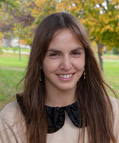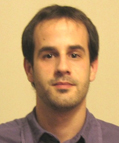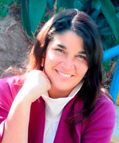What will you learn?
The Master's Degree in Educational and Psychological Intervention (MIEP) trains professionals in areas related to intervention, mediation and resource management so that they can respond to the special needs of people throughout their life cycle. It lasts a full academic year (from September to August) and requires full dedication to studies.
We aim to provide high-level specialised training for graduates, graduates and young professionals who aspire to compensate, directly or through other educational agents, the learning difficulties and disorders of development that some people present throughout the life cycle. Specifically, the aim is to train professionals in the management and guidance of the processes of:
-
Cognition and report (High abilities and people with disabilities)
-
Communication (developmental disorders of language, communication and speech)
-
Learning (difficulties in reading, writing and mathematics, children with ADHD)
-
Affective-social (fears and phobias, violence and bullying).
-
To provide students with useful and effective tools for the analysis and planning of intervention strategies and programs, along with a knowledge of the basic fundamentals for their development and implementation, including the evaluation of results.
-
To know the procedures and resources aimed at achieving maximum participation and social inclusion of people with special educational needs and/or disabilities.
-
To train professionals in the human and ethical values that should result in the goodness and effectiveness of their work and facilitate the social and professional recognition of their work.
-
To train professionals for the design of programmes aimed at prevention and the development.
-
Promoting basic and applied research.
You will be able to work in...
We prepare you to carry out guidance, intervention and research work in the following centres:
-
Psychopedagogical offices
-
Occupational and employment management centres
-
Associations of people with disabilities, illnesses, etc.
-
Special education centres
-
Guidance offices of institutions (town halls, municipalities, governments, etc.)
-
Social services
-
Departments socio-educational guidance
-
Health education programmes
-
School and family mediation programmes Universities
This Master's Degree does not qualify Spanish students to work as counselors in a public, subsidized or private school.
Testimonials from some of our students

After graduating in General Basic Pedagogy from the Universidad de los Andes (Santiago, Chile), Begoña Bejide came to the @universidaddenavarra to study the Master's Degree in Educational and Psychological Intervention for @edupsicounavShe is also a course delegate.
She wanted to specialize in this field because she sees the need for "all people to have equal opportunities in society, covering the support needs that each person has individually". Thus, during this course, Begoña hopes to learn about different realities, disorders, conditions and interventions in depth that will help her to accompany and reach out to people.
Recently, and as part of a visit organized in the Master's Degree, she traveled to Madrid to attend to the IV congress national Interdisciplinary Education Special. Begoña recognizes that what surprised her most were the different views and perspectives on inclusion. "It's not just about what it allows, but the way in which it is aware and applied to reality in its different areas", and she adds "for inclusion to be a true reality and not that of some, change must come from the whole and not from one part".
In the future, Begoña does not rule out further research to do her bit in this field, "we have to keep adapting to the constant changes in society," she says.
 E: What do you think of the Master in Educational and Psychological Intervention?
E: What do you think of the Master in Educational and Psychological Intervention?
MA: The truth is that it is very interesting and enriching. We are working on many aspects that in my career (Teaching in Primary Education) I had only had the opportunity to listen to them without investigating them and the truth is that I think it is vitally important to know them in order to give the most appropriate response to each of my prospective students.
E: Where are you going to do the practicum?
A: In Isterria, (Special Education Centre) in the town of Ibero.
I: Why did you choose that place?
MA: As I mentioned before, I have studied Primary Education and I did not have the opportunity to do an internship in a Special Education centre, so I would like to try the experience and see how they work in these subject centres.
E: What do you hope to achieve during that time?
MA: To learn as much as possible from the professionals working at the centre and to acquire new skills and abilities for my future career.
E: What is expected of you?
MA: Difficult question. Well, first of all to enjoy and learn every minute and at the same time to feel qualified in the work I am given, at final, to work one on one with children and adolescents.
E: Do you feel like getting started?
MA: Thank goodness the hard stuff is coming to an end and it's time for the good stuff! Hehe...

"I have been able to take on the great challenge of my current work , a pioneer in inclusion in higher Education in Latin America, thanks to the tools I received during the year I studied in Navarra. I highlight above all the academic standards, the quality of the faculty and the staff attention".
Alejandra Ríos Urzúa
Master in Educational and Psychological Intervention '09
Director Diploma en Habilidades Laborales - Universidad Andrés Bello (Chile)
E: What do you think of the Master in Educational and Psychological Intervention?
RC: I found the Master's in Educational and Psychological Intervention to be good and, above all, complete, as it allowed me to learn new mechanisms and trends, which I will then be able to apply effectively in Guatemala.
E: Where are you going to do the practicum?
RC: At the Down Syndrome Association of Navarre
E: Why did you choose that place?
RC: Throughout the Master's course I was taught different subjects, but when I learned about intellectual disabilities, it touched my emotional fibres and made me think about the vacuum that exists in my country regarding this subject topic; that is why I want to learn new methods and techniques of intervention, which I can implement in my country and start making changes in the lives of children with intellectual disabilities and their families.
I: What do you hope to achieve during that time?
RC: I hope to learn innovative methods and techniques that I can apply in my country and allow us to have more effective results. I will also be able to share this new knowledge in the academic and professional environment with future generations of professionals, especially with the support of international institutions, private initiative and governmental entities.
E: What is expected of you?
RC: A lot is expected of me, I am expected to know, to learn and above all to be involved in the process, and then to apply it effectively in my country.
E: Are you eager to get started?
RC: Yes, this is the part of the Master's that I have been looking forward to the most, it is the moment when I will be able to put the theory I have learnt into practice and above all I am looking forward to taking this process to Guatemala.
Dr. Rosario Reparaz
Academic Director
Eva Fernández-Micheltorena
Coordinator of Master's Degree

